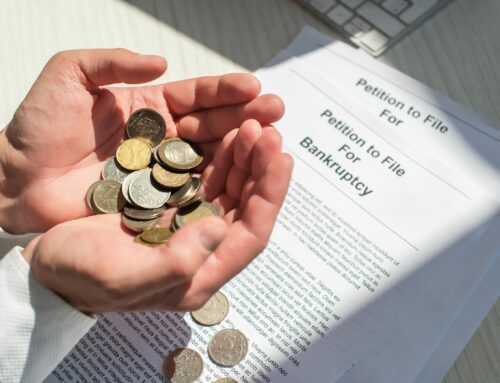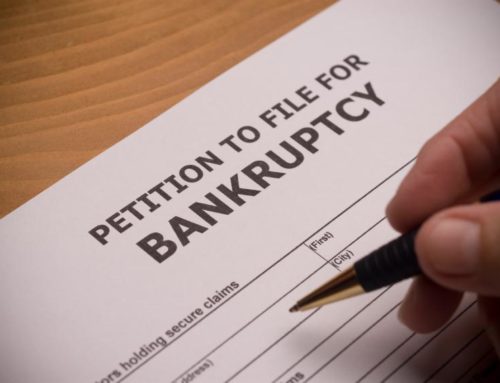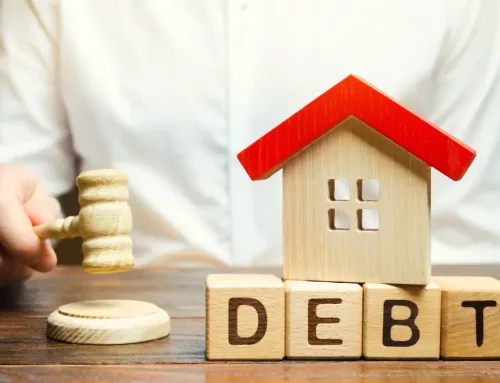The bankruptcy filing allows you to have a fresh start and secure your financial future. Filing for bankruptcy enables the filer to either pay off or wipe out debts to a creditor. A debtor files a petition in bankruptcy if he or she is no longer capable of paying his or her debts. Once the bankruptcy court has approved the bankruptcy petition, an automatic stay will take effect. Such bankruptcy protection is helpful against wage garnishment, foreclosure, and creditor harassment. An automatic stay prohibits any collection activities from debt collectors, including phone calls and emails.
There are qualifications that you must meet when you file for bankruptcy. A bankruptcy means test is being used to determine whether an individual is eligible to file a petition for bankruptcy under certain chapters. Generally, your monthly income and living expenses will factor in if you want to be able to file for bankruptcy.
When declaring bankruptcy, the choice on the filing chapter will also depend on what types of debt you owe from your creditors. There are different types of debt, which are often categorized as unsecured debt and secured debt. Unsecured debts include credit card bills and medical bills. These types of debt are dischargeable when you file bankruptcy. On the other hand, secured debt and obligations such as child support, alimony, student loan debt, and tax debt are non-dischargeable. Several benefits come with filing personal bankruptcy. For most, however, the main goal of filing bankruptcy is to eliminate your debts and obtain a bankruptcy discharge.
Understanding relevant bankruptcy law is important to avoid legal issues during the actual bankruptcy process. Consulting a bankruptcy attorney is highly advisable for you to decide which would be best for your bankruptcy case. The most common choices are Bankruptcy Chapter 7 (or liquidation bankruptcy) and Chapter 13 (or reorganization bankruptcy).
Chapter 7 Bankruptcy
 Bankruptcy filings under Chapter 7 are generally the simplest and it is also processed faster than the other types of bankruptcy. When you file the necessary paperwork promptly, it would only take three to six months for the case to be complete.
Bankruptcy filings under Chapter 7 are generally the simplest and it is also processed faster than the other types of bankruptcy. When you file the necessary paperwork promptly, it would only take three to six months for the case to be complete.
Under this chapter, you will have to give up your nonexempt assets to be sold and distributed. A bankruptcy trustee will evaluate your nonexempt assets and manage the sales of your personal property. The funds will then be allocated to your creditors. Note, however, that since exempt property cannot be sold (because of exemption laws that the debtor is entitled to), filers lose little to no assets.
Liquidation bankruptcy is suitable for those who owe mostly unsecured debt like utility bills, medical debt, and credit card loans. After the completion of the bankruptcy proceeding, these unsecured debts will be completely wiped out. The benefit of eliminating unsecured debts like credit cards and medical bills is that it would free up more budget for retirement plans, education, and better financial management.
If you are not able to keep up in making payments for your secured debts (like your home and vehicle) and you do not want to surrender your properties, Chapter 13 will likely be the best bankruptcy option for you.
Chapter 13 Bankruptcy
Under this type of bankruptcy, you may be able to secure all your properties and instead propose a debt repayment plan to the bankruptcy court. Your payment plan must be within your budget for you to be able to make regular monthly payments. After the bankruptcy judge approves your payment plan, you must pay your creditors following the agreed schedule.
Chapter 13 bankruptcy will be beneficial if you want to save your home from foreclosure. This bankruptcy chapter would usually take up to three to five years to be complete. After the proceeding is completed, all dischargeable debts would be eliminated. However, to secure your assets, you must continue making monthly payments to your creditors.
Chapter 7 and Chapter 13 bankruptcies work best for different circumstances. A Chapter 7 bankruptcy declaration is much quicker, but a lot of people struggling with mortgage payment consider filing Chapter 13. Your bankruptcy lawyer will help you plan on how you will either opt to have assets liquidated or repay your creditors.
Non-dischargeable debts as enumerated earlier will remain due and demandable even after you have filed bankruptcy. On a positive note, the solution to these comes from the fact that if you have successfully eliminated your unsecured debts, making payments for these non-dischargeable debts will become easier for you.
Struggling with debt and financial problems is extremely stressful especially when you have no idea about the bankruptcy procedure. Seeking legal help is important for you to know how to file and understand pertinent bankruptcy rules of each chapter. Bankruptcy lawyers will assist you throughout the proceeding, and even after you file bankruptcy.
For legal help and assistance, talk to our bankruptcy attorneys at Thomas E. McIntire & Associates, L.C., and have a fresh start with your finances. Call us at 304-232-8600 today.





